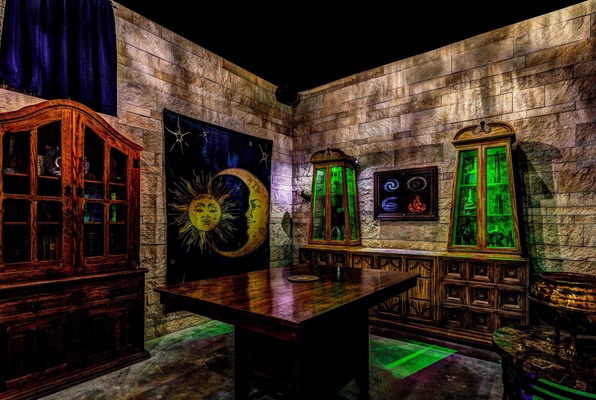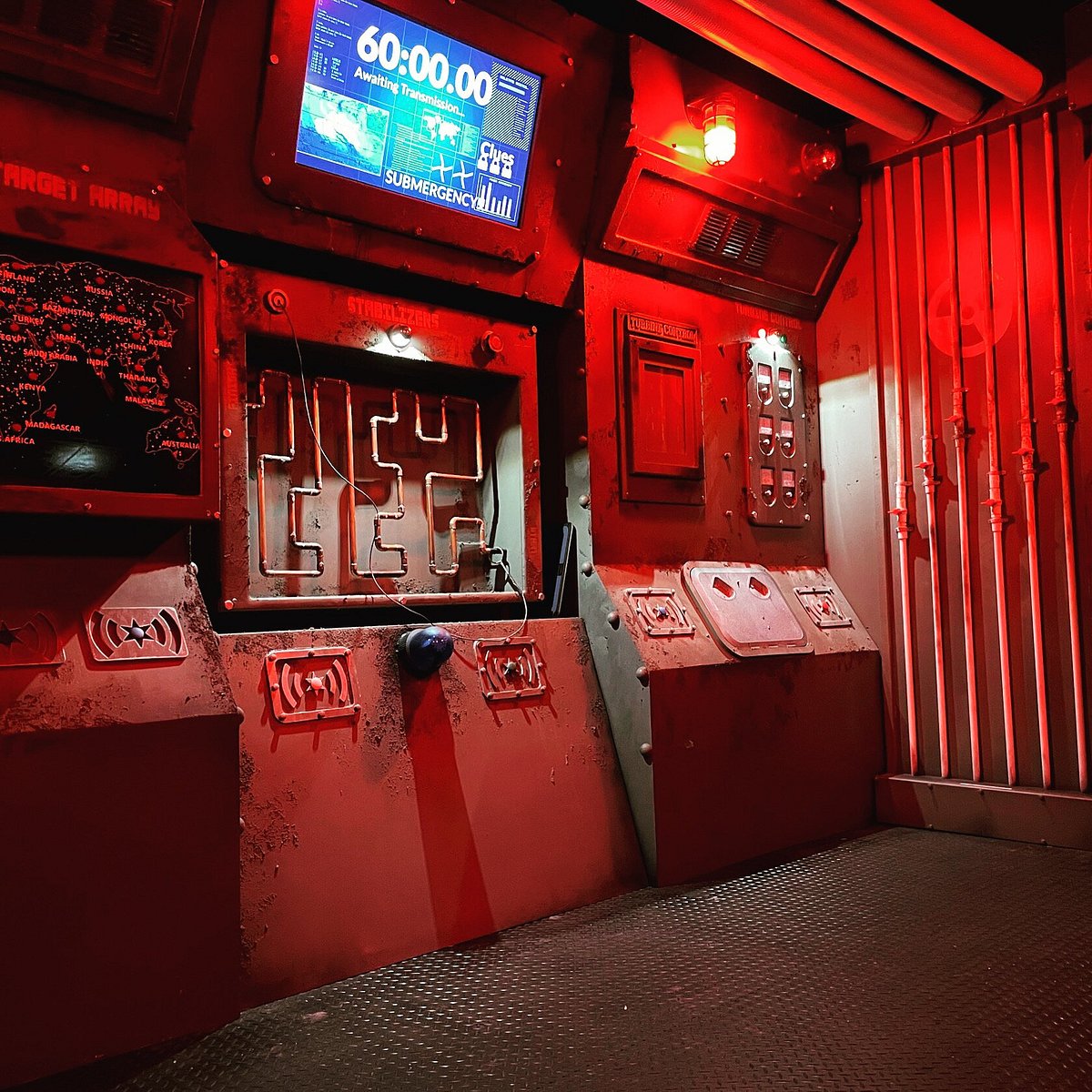Obstacle Your Mind With Our Intriguing Escape Room Puzzles and Clues
Starting a getaway space experience uses a diverse experience that blends cognitive difficulties with immersive storytelling. Each room, carefully crafted with special motifs, attracts participants right into a world where reasoning, observation, and physical challenges assemble. This atmosphere not only fosters important reasoning and team effort yet also supplies the excitement of exploration as each clue leads to the following. To completely appreciate the detailed layout and myriad kinds of difficulties involved, one have to think about the strategies and benefits that make these experiences both greatly fulfilling and psychologically revitalizing. Exactly how can these escape rooms transform your approach to analytical?
The Art of Puzzle Design
The art of problem design in getaway areas is a careful and innovative procedure that requires a deep understanding of both cognitive and emotional involvement. Crafting a successful problem entails balancing complexity with solvability, making sure that individuals stay challenged yet not overwhelmed. This balance is vital, as it promotes a sense of achievement and promotes continued involvement.
Puzzle developers have to consider different cognitive skills, such as pattern acknowledgment, deductive thinking, and spatial awareness. These elements ought to be interwoven flawlessly within the narrative of the retreat room, enhancing the immersive experience. Emotional engagement is similarly crucial; problems should evoke interest, enjoyment, and occasional irritation, encouraging individuals to be determined and ultimately be successful.
Interest to information is extremely important. Every idea, prop, and device must be meticulously designed and tested to make certain performance and coherence within the storyline. Designers frequently iterate on their developments, incorporating feedback from test teams to improve problem levels and eliminate ambiguities.

Kinds of Escape Room Difficulties
Recognizing the details of puzzle design naturally results in an expedition of the varied kinds of obstacles run into in retreat areas. These difficulties can be generally categorized right into physical problems, logic challenges, and empirical challenges, each offering special types of interaction and cognitive excitement.
Physical challenges need participants to interact with their environment, typically entailing jobs such as setting up items, controling mechanisms, or uncovering covert compartments. These challenges involve responsive senses and spatial reasoning, encouraging synergy and hands-on analytic.
Reasoning puzzles, on the other hand, demand logical reasoning and pattern recognition. Participants could be charged with deciphering ciphers, solving mathematical troubles, or discovering connections in between seemingly unrelated ideas - seattle escape room. These problems are created to evaluate the players' deductive thinking and intellectual prowess
Empirical challenges rely upon eager interest to detail. Gamers need to scrutinize their environments to identify refined hints, discrepancies, or concealed messages. These obstacles usually demand a sharp eye and an ability to regard connections that may forget.
Strategies for Success
Accomplishing success in escape areas requires a thoughtful mix of method and collaboration. Team effort is paramount; gamers have to leverage their collective strengths to solve complicated problems successfully. Dividing tasks according to private abilities can improve the procedure-- those with a propensity for pattern acknowledgment can manage visual challenges, while sensible thinkers tackle riddles and series.
Efficient interaction is another cornerstone of success. Sharing explorations promptly avoids copied initiatives and ensures every person remains on the same page. Utilizing a main location to position located objects can assist track development and avoid missing important ideas.
Time management is similarly crucial. Designate a details quantity of time per problem, staying clear of prolonged focus on any single challenge. Switching problems or looking for support from teammates can offer fresh perspectives. if progression stalls.
It's also useful to familiarize oneself with common escape area styles and problem kinds ahead of time. Recognizing prospective puzzle styles, such as ciphers or lock mixes, can quicken analytical.
Finally, keeping a positive and composed perspective under pressure can substantially affect performance. Stress and anxiety can shadow judgment, so preserving tranquil makes certain clear reasoning and effective collaboration, bring about a higher possibility of effectively escaping.

Advantages of Escape Rooms
Engaging in escape rooms provides a wide range of benefits that expand past plain amusement. These immersive experiences offer as a robust platform for creating critical thinking and analytic abilities. Individuals are required to evaluate hints, determine patterns, and create options under time constraints, promoting imagination and cognitive flexibility.
Moreover, retreat areas are an effective device for improving team effort and communication. The collaborative nature of these tasks demands effective interaction and control amongst dig this employee. This environment urges individuals to express their thoughts clearly, listen proactively, and job synergistically towards a common objective, thereby enhancing interpersonal skills.
In addition, retreat spaces provide an excellent method for anxiety relief and mental restoration. The engrossing nature of the challenges permits individuals to divert their emphasis from day-to-day stress factors, promoting a feeling of achievement and well-being upon fixing the challenges. This can lead to boosted mental wellness and boosted productivity in other locations of life.
Finally, these experiences frequently call for creativity and resourcefulness, check here which can equate into ingenious problem-solving capabilities in professional setups. By engaging in escape spaces, people can develop a varied capability that applies in numerous real-world circumstances, making them an important enhancement to any personal or expert growth plan.
Popular Themes and Situations
Looking into the diverse globe of retreat rooms exposes a myriad of preferred themes and situations that captivate individuals and enhance the immersive experience. Among the most cherished motifs are those that transport gamers into fantastical realms or historical durations. Ancient Egyptian tombs, middle ages castles, and pirate adventures are perennial favorites, allowing participants to address puzzles within richly detailed settings that evoke a sense of experience and exploration.
An additional widespread theme is the enigma and investigative style, where gamers locate themselves in the duty of sleuths addressing a criminal activity or revealing keys. These scenarios typically feature intricate storylines and a collection of interconnected ideas that need eager monitoring and deductive reasoning to decipher.
Additionally, science fiction and scary motifs hold significant allure, making use of the intrigue Get More Information of advanced innovation or the thrill of browsing haunted labs and houses. These scenarios regularly integrate sophisticated props and unique impacts, enhancing the realistic look and stress.
Finally, numerous retreat spaces draw ideas from pop culture, creating experiences based upon cherished publications, motion pictures, or TV programs. This can stimulate a sense of knowledge and enjoyment, as individuals engage with scenarios that pay tribute to their favored narratives.
Conclusion
The detailed style of escape space challenges and hints offers an one-of-a-kind blend of cognitive obstacles and immersive storytelling. By participating in numerous sorts of physical, rational, and empirical challenges, individuals refine essential reasoning and team effort skills. Employing reliable strategies improves the general experience, highlighting the multifaceted benefits of retreat rooms. Popular styles and scenarios additionally enrich the experience, making retreat rooms a educational and compelling task for enhancing mental acuity and analytic capacities.
Each area, meticulously crafted with distinct styles, draws individuals into a globe where reasoning, monitoring, and physical problems merge.The art of problem design in getaway spaces is a thorough and imaginative process that requires a deep understanding of both cognitive and emotional engagement. Crafting a successful puzzle involves balancing complexity with solvability, ensuring that individuals stay tested yet not bewildered. The engrossing nature of the difficulties allows people to divert their focus from everyday stress factors, promoting a sense of accomplishment and well-being upon addressing the problems.The detailed layout of getaway space puzzles and clues offers an unique mix of cognitive challenges and immersive storytelling.